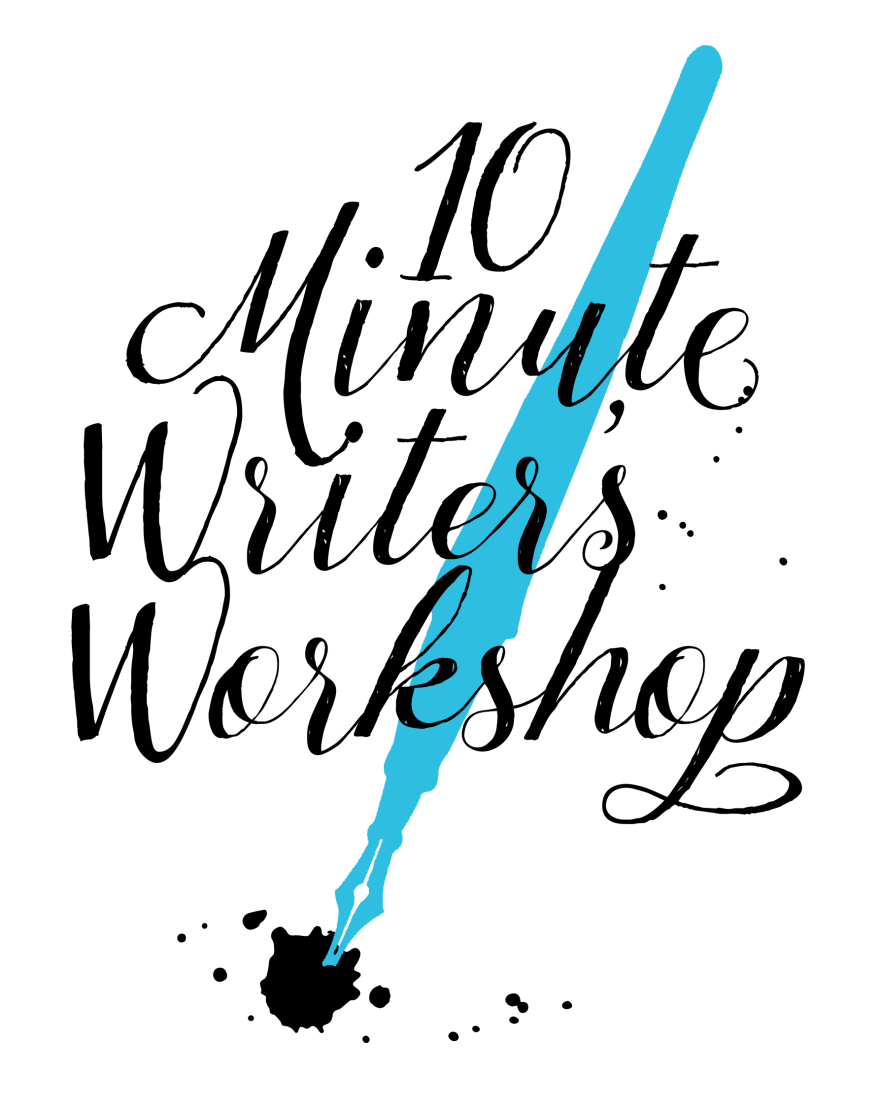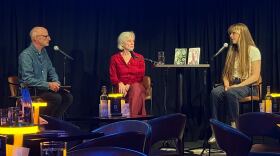Recently, the multi-talented poet/artist/rock legend Patti Smith joined us to discuss her latest memoir, M Train, for our program Writers on a New England Stage. Before the show, we sat down with Patti in the greenroom of the Music Hall to talk about her writing process. The conversation is part of a series we call the 10-Minute Writer's Workshop.

What's harder to write - the first sentence or the last?
I think that the first and the last sentence, for me, are not hard at all. They seem to come as a gift. The hardest part is the middle. The first line and the last line, which I find are so infinitely important, seem to come to me without a problem. It's really the wrestling with all the stuff in between.
Any habits you'd encourage young writers to take up or avoid?
I wouldn't presume to tell anybody anything, but I think having routine is really helpful. For me, I get up early, go to a cafe, or, if I don't have a cafe to go to, to my desk or somewhere, early in the morning... a coffee... preferably when the city is sleeping, when people are sleeping, when you seem to own the universe, and spend some time with yourself writing, and make that a habit. I try to do that every day, and I think writing, a lot of it is discipline and labor. We can be inspired at any time - in the middle of the night, we wake up at three in the morning - but there's so much labor to be done, it's good to develop a work ethic and a discipline.
Also, always have a notebook somewhere on ya, or some piece of paper, some scrap, some pencil stub, because something comes to you at all these inopportune times, and there's nothing worse than thinking you have the line of your life and no pencil or a piece of paper at hand.
When do you make the transition from notebooks to computer?
I've learned the hard way not to wait until I have mounds and mounds of work. I try every ten, twelve pages or so to transfer onto a little laptop. I used to write everything by hand, but it was so tedious after a while, and hard on my hand, 'cause I'd write whole manuscripts over and over by hand, that I find the computer very useful. But I try to get a little bulk done.
Do you edit as you go, or wait until the end?
I generally wait, because you can get really tripped up editing and get so involved in editing a segment that you lose your grasp on the whole.
Worst distraction from writing?
Detective shows. If I'm supposed to be working and there's a new George Gently, or some marathon... every once in a while, if I'm lucky, there's some marathon of CSI: Miami or something, that can be a little distraction. And it's a new distraction for me, because for years and years I didn't even watch TV. But since my detective addiction, I've found that I have to discipline myself a little sometimes, and do my work.
On being a part of The Killing:
I actually was asked, after the book was done, to be on the last little season. They were canceled, and when the book was done, I wrote a mournful letter to the producer. Then when she made a deal to make six more episodes, she asked if I'd like to come to Vancouver to watch them film and I said, "of course." Then she sent me another message and said, "well, why don't you do a little cameo role?" and I was thrilled, so I got to play Anne Morrison, neurosurgeon, and did a scene with Linden and Holder. And some months later, I got a box in the mail, and each of them had sent me a little souvenir of the show, and she had sent me one of her Fair Isle sweaters.
Most common mistakes new writers make?
Oh, I don't know. I think that's it's not a matter of making mistakes. It's just writing and writing and writing. You can't fault people for making mistakes when they're doing anything new. You just keep writing until you find your voice. Sometimes we mimic other voices, or we go through different phases, but a lot of that is necessary. So, I don't think of it as mistakes, I think of it as a learning process.
Any books or tools you'd recommend for learning to write?
I don't read those books that help you... there are books that people consult for grammar and structure and all, but I don't have any patience for them. If I want to learn about writing, I read writers that I like. That's how I learn, just reading other writers, see how they do things... how they build a character, their sense of rhythm. Writers are the best teachers to learn how to write, I think.
Best piece of advice received about writing?
I think it was William Burroughs, said "say what you mean." I was having trouble, I was really having trouble conveying a certain thing, and he said just "say what you mean." You know, just step back, and just simply say it out loud. If you're trying to convey something, and you're writing it on paper, sometimes you just get tripped up with language, in this labyrinth of language. So, speak it out loud, see if it flies.
How many times were you rejected before you were published?
A lot. Truthfully, I was rejected quite a bit when I was young, like all my poems and everything. But I haven't really published that much. I've spent my life writing and not publishing. I have novels, unfinished novels, stacks of unpublished poems. I've only published about a tenth of what I've written. I really don't have the tendency to send my work out. If I think it's ready, then I go and take it to somebody, see if they want it. Luckily, at this point of my life, I can do that.








